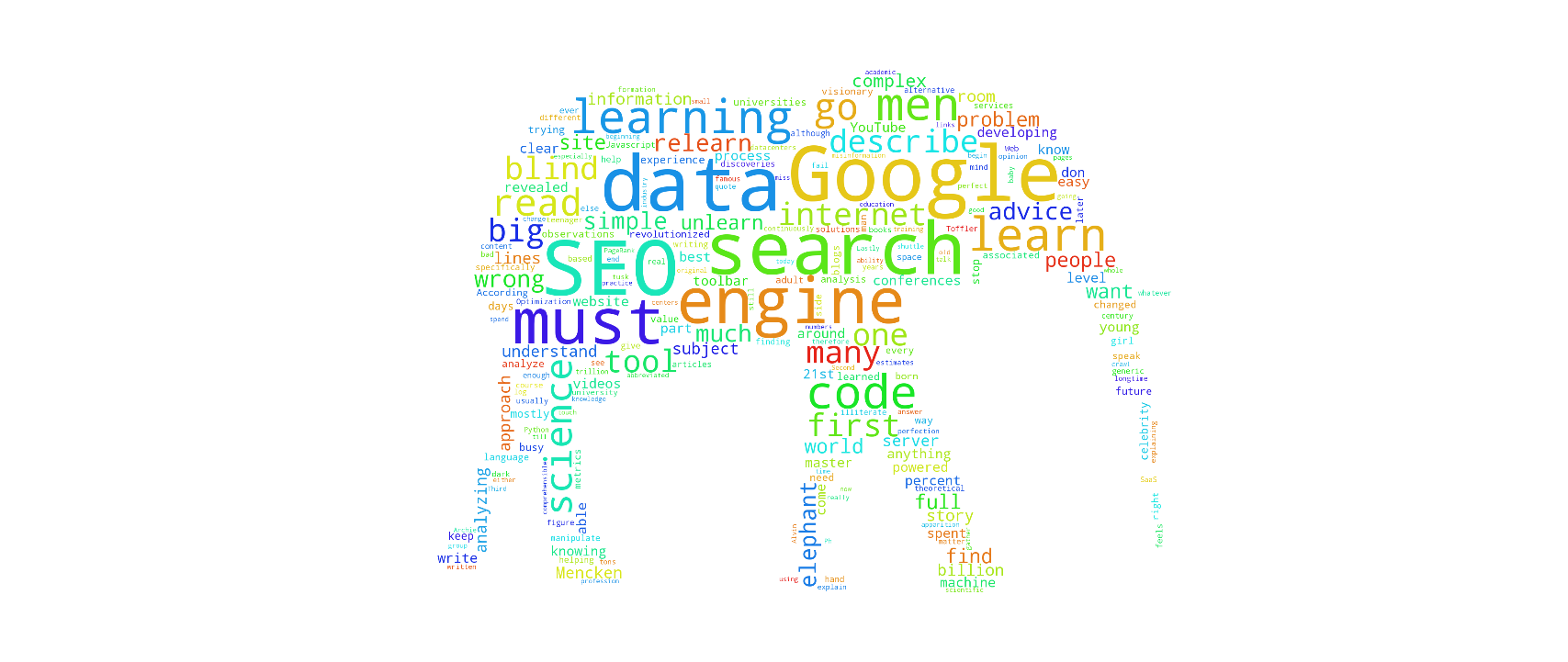SEO
Search Engine Optimization (abbreviated as SEO), is a very young profession. SEO is born around the 1990’s with the first search engine Archie, after the emergence of Google in 1998 she was no more a baby girl. In 2001 when PageRank is revealed to the world through the toolbar, she was a famous teenager. Today, SEO is a 27 years old young adult celebrity trying to figure out what machine learning is.
SEO was comprehensible and easy in the beginning but Google changed that irreversibly. Google revolutionized the search engine industry with its scientific approach and ability to gather, manipulate and analyze big data to value the links and the content.
With some numbers, Google:
- Knows 130 trillion pages on the Web.
- Its internet services are powered by 2 billion lines of code that's 5,000 as many lines of code as the original space shuttle
- Announced that the Knowledge Graph now holds 70 billion facts in October 2016
- Has spent $15 billion for its datacenters.
- Has around 900,000 servers in all its data centers based in the world.(According to estimates)
Learning SEO
These days, SEO is a subject of search data science ever than before therefore any methodology to understand and explain it without big data analysis in my opinion is subject to fail.
The American satirist H.L. Mencken said:
“For every complex problem there is an answer that is clear, simple, and wrong.”
SEO is a very complex problem and you can find many who come up with clear, simple solutions which are wrong.
If you want to learn SEO but in real, you must know that it is not an easy, simple way without pain.
You must analyze data, tons of data, you must spend countless days to find out what is wrong with a site’s SEO.
Six Blind Men And SEO
On the other hand, there are still lots of people who write books, articles on blogs, produce videos on YouTube, talk in conferences or in webinars about SEO explaining their observations, discoveries without any data analysis or using any metrics. Most of the time I associate them, especially the ones who speak without analyzing the data with the story of “Six blind men and an elephant”. It is a story of a group of blind men (or men in the dark) who touch an elephant to learn what it is like. Each one feels a different part, but only one part, such as the side or the tusk. At the end they are not able to understand and describe what it is as a whole.
The internet is full of information about SEO but what percentage of that information is written by the men who can see and who can describe entirely what is in it? If there is someone who can do it, he is not writing anything because he is very busy perfectioning Google as an answering machine, developing his SaaS tool for SEO or else developing his own search engine.
If you want to learn SEO, the universities cannot help you much either as usually academic formation is primarily about data science not specifically search data science and the people who give training themselves do not have much experience in that matter although they have the right knowledge. Consequently the education you can get basically will be at theoretical level and generic which is not bad but you will need practice later.
Learn, Unlearn And Relearn SEO
Knowing the internet is full of misinformation about SEO and you cannot go to the university to get Masters or Ph.D. in search data science, so what will you do?
Will it stop you going on the internet?
No, not at all, you will go there because you don’t have a choice.
So, you should start learning SEO knowing you have to unlearn and relearn it in the future.
The visionary Alvin Toffler said:
"The illiterate of the 21st century will not be those who cannot read and write, but those who cannot learn, unlearn, and relearn".
This quote is perfect to describe the learning process in SEO.
Recommendations For Learning SEO
My advice to you for learning SEO is, first find a master, a guru. That’s how I learned it. The problem is, it is not easy to find the right one because there are very few.
Second advice, have your own web server, your own sites, your own tools, be able to modify everything on your sites and analyze crawl and web server log data yourself while crawling other sites to see how far you can go in search data analysis. But keep in mind, this cannot be enough as if the SEO of big websites and small sites are not the same and usually big websites don't allow you to crawl their sites.
Third advice is read, read and again read about data science and machine learning continuously while coding whatever language you like C, Python, R, Go, Ruby, Javascript...
Lastly don’t miss the best SEO conferences.
Thanks for taking time to read this post. I offer consulting, architecture and hands-on development services in web/digital to clients in Europe & North America. If you'd like to discuss how my offerings can help your business please contact me via LinkedIn
Have comments, questions or feedback about this article? Please do share them with us here.
If you like this article
























Comments